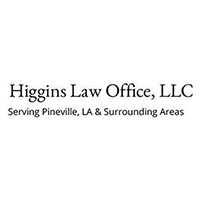Morrow White Collar Crime Lawyer, Louisiana
Sponsored Law Firm
-
 x
x

Click For More Info:
-
Babcock Trial Lawyers
10101 Siegen Ln #3-C Baton Rouge, LA 70810» view mapCriminal Defense We Want Your Injury Claim PAID NOW!
At Babcock Trial Lawyers, we work for our clients, maintaining our reputation of excellence as criminal defense & personal injury lawyers in Baton Rouge.
225-500-5000
Not enough matches for Morrow White Collar Crime lawyer.
Below are all Morrow Criminal lawyers.
George Higgins
✓ VERIFIEDCriminal, Accident & Injury
George Lewis Higgins III received his Juris Doctor degree in 1979 from Paul M. Hebert Law Center at Louisiana State University in Baton Rouge. Mr. Hig... (more)
Benjamin David James
State Appellate Practice, Family Law, Criminal, Personal Injury
Status: In Good Standing Licensed: 14 Years
Pride Justin Doran
Mass Torts, Litigation, Lawsuit & Dispute, Criminal, Personal Injury
Status: In Good Standing Licensed: 27 Years
A Bruce Rozas
Sexual Harassment, Criminal, Personal Injury
Status: In Good Standing Licensed: 56 Years
J. Marc Lampert
Criminal, Divorce & Family Law, Divorce, Family Law
Status: In Good Standing Licensed: 51 Years
FREE CONSULTATION
CONTACTLeo Joseph Flynn
Criminal, Divorce & Family Law, Employment, Estate
Status: In Good Standing Licensed: 13 Years
 Stephen Babcock Baton Rouge, LA
Stephen Babcock Baton Rouge, LA Practice AreasExpertise
Practice AreasExpertise

